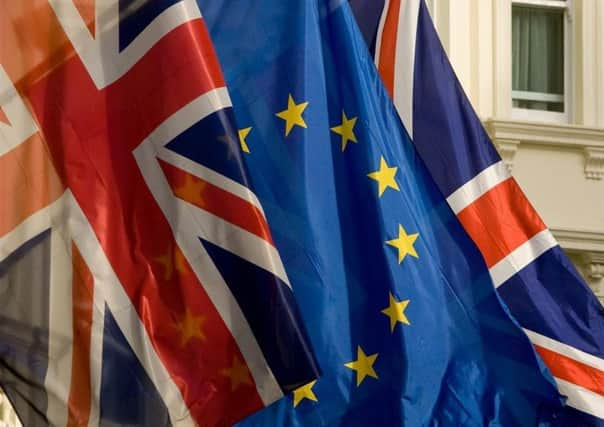Unionists were once more optimistic than the Eurosceptics of today


How was it possible that the DUP encouraged its flock to vote for an outcome that would threaten the Union not just with the UK but, by extension, with the old country itself, Scotland?
The ethnic and political dimension of the Good Friday agreement, a model of conflict resolution around the globe had at its foundation the dimension of common European citizenship and an appeal to the (quite separate) European Convention of Human Rights, to which the UK was a founding signatory.
Advertisement
Hide AdAdvertisement
Hide AdThese and the enormous levels of energy put into the process by political leaders of genuine standing, are among the few points of detail in which it differs from the 1973 Sunningdale Agreement.
How could it be, I wonder, that unionists of the border pedigree of Arlene Foster and the intellectual powers of Lord Trimble could have allowed such a large segment of unionist sympathy, largely unscathed surely from the worst aspects of immigrant labour, to align itself with the euro-sceptic views of the Secretary of State?
I remember well trips to the Balmoral Show in the early 1970s with my late father (James T Kernohan) and my mother, both from settler farming stock in Antrim and Fermanagh respectively.
While the Province of course voted hesitantly in the 1975 EEC vote, levels of cautious enthusiasm towards Europe were felt by many unionists of that generation, despite the irony that Ulster’s farming and regional economies were at that time out of line with the EEC to almost the same extent as both now broadly benefit!
Advertisement
Hide AdAdvertisement
Hide AdIt is my belief that the more optimistic unionists of that period knew well that NI’s problems did not principally arise abroad.
What a sad comparison then with many of the present generation of politicians who, in allowing themselves to be entranced by single-issue, anti European thinking of the shallowest type may yet have jeopardised both the peace process and not one but two Unions.
David Kernohan, London and Brussels